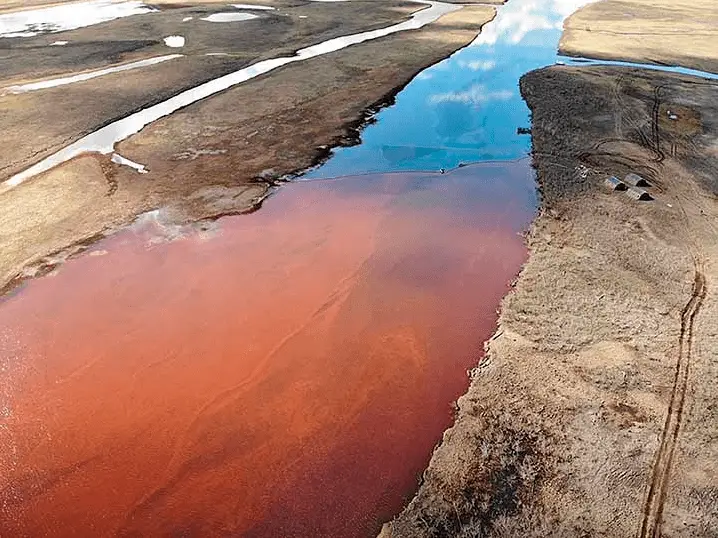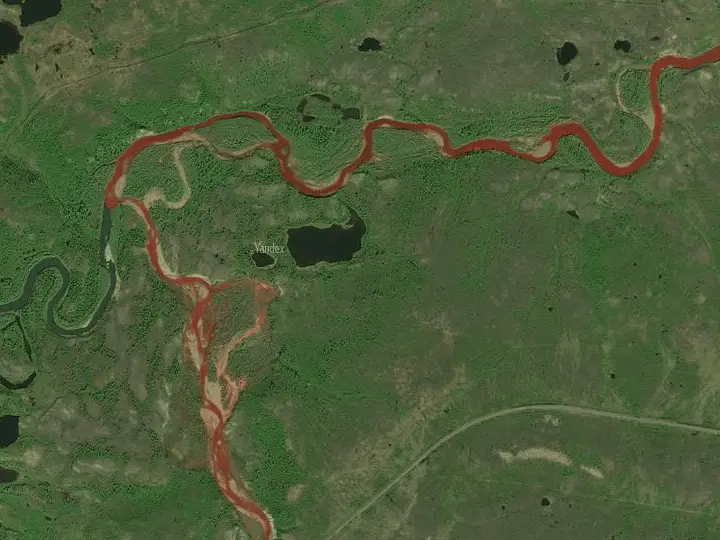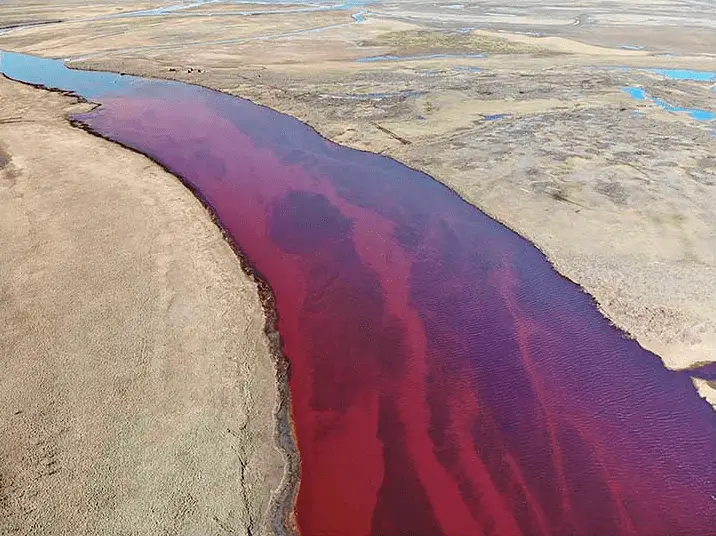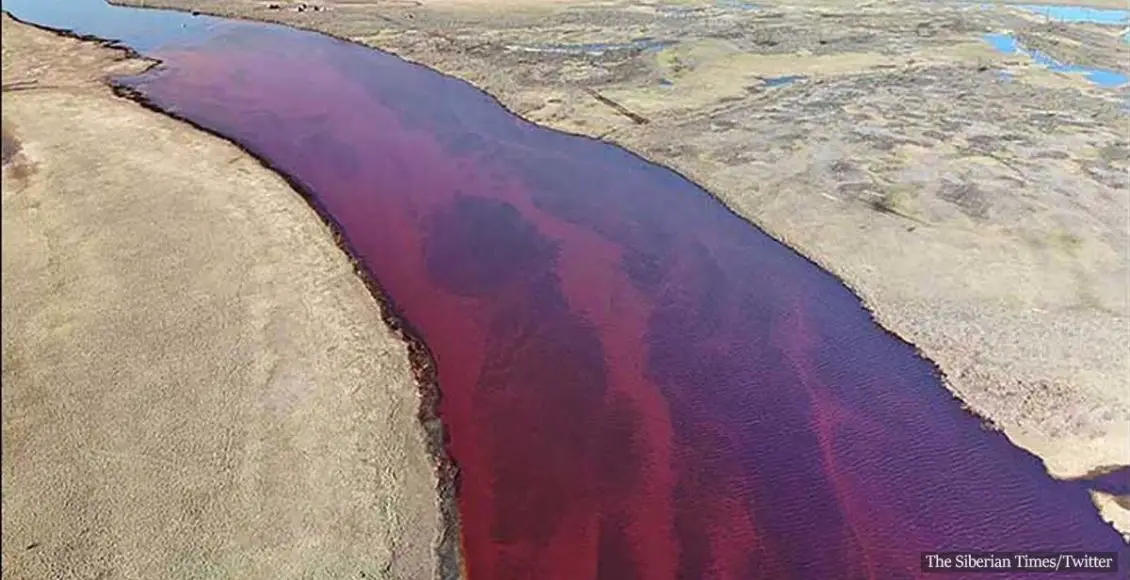Russia declared a state of emergency: A massive diesel leak turned rivers bright red in the country’s Arctic region.
A shocking phenomenon occurred this week in the Siberian city of Norilsk, Russia. Around 20,000 tons of oil leaked into the rivers in the city’s surrounding area, Interesting Engineering reports. The fuel turned the water bright red.
The leaking power plant belongs to a subsidiary of Norilsk Nickel – the world’s leading producer of nickel and palladium.
Russia’s President Vladimir Putin officially declared a state of emergency in the Arctic Circle region, as BBC reveals.
State of emergency in Norilsk after 20,000 tons of diesel leaks into Arctic river system. Fear that thawing permafrost caused damage to storage tank https://t.co/EYvzar8jUQ pic.twitter.com/oN4pOtLZy0
— The Siberian Times (@siberian_times) June 2, 2020
Stunning images emerged of the now red rivers Ambarnaya and Daldykan. Taken from above, the shots look like a blood-soaked crime scene.

Moreover, the massive oil spill is so bright, it can be clearly noticed from satellite images taken by Russia’s version of Google Maps, Yandex Maps.

Vyacheslav Starostin, the power plant’s director, has been taken into custody until 31 July. However, he still hasn’t been charged for the catastrophic diesel leak.
The state of emergency was declared as the enormous oil leak may cause long-term environmental damage to the area.
President Vladimir Putin slammed the local authorities for not taking action on time, as it took two days for the emergency to be announced. Holding the subsidiary’s chief, Sergei Lipin responsible, Putin asked:
“Why did government agencies only find out about this two days after the fact? Are we going to learn about emergency situations from social media?”
The governor of the Krasnoyarsk region, where Norilsk is located, Alexander Uss, confessed to the Russian President that he found out about the leak after ‘alarming information appeared in social media’.

According to the World Wildlife Fund (WWF), the workers have been using barriers to stop any more oil from leaking into the rivers, ABC News reports.
Aleksey Knizhnikov, WWF Russia’s director for environmentally responsible business, explained that the most toxic components of diesel fuel dissolve easily in water. Therefore, barriers wouldn’t be enough to stop the huge environmental impact this spill will have.
20,000 m³ of diesel fuel spilled into rivers in Russia➡️ "NTEC’s aging infrastructure combined with rapidly thawing permafrost in the region highlight the need for companies in the #Arctic to switch to alternative energy sources." Aleksey Knizhnikov @wwfRU https://t.co/8aoDfRjTU7
— WWF Arctic Programme (@WWF_Arctic) June 4, 2020
A hundred tons of fuel have already been removed from the area, and 100 extra emergency workers have reportedly arrived in the region.
In a separate statement, Sergey Verkhovets, WWF Russia’s coordinator for arctic projects, said:
“The consequences of such accidents, especially in the north, reverberate for a long time. It means the death of fish, the contamination of birds’ feathers, and the poisoning of animals.”
A catastrophe is taking place right before our eyes. The diesel spill in Norilsk has become the first accident of such a scale in the Arctic. 20 thousand tonnes of diesel fuel have been spilled in local rivers. pic.twitter.com/PXEXkTuACE
— Greenpeace Russia (@greenpeaceru) June 4, 2020
Norilsk Nickel suggests that the reason for the massive fuel leak is possible collapsing of the tank due to permafrost melting beneath it following an unnaturally warm winter in the region.



